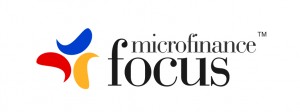Bankers without Borders: An Interview with Shannon Maynard
Shannon Maynard is the Chief Talent and Knowledge Officer at Grameen Foundation, and the Founding Director of Bankers without Borders. In this interview with Microfinance Focus, Maynard discusses Bankers without Borders’ effective volunteer placement strategy that has made the organization a go-to for employees and social responsibility departments of leading financial institutions.
This past August, Wells Fargo announced that it would partner with Bankers without Borders to expand their Global Fellows Program. Through Bankers without Borders, Wells Fargo’s Global Fellows will have the opportunity to volunteer their skills and expertise with microfinance and poverty-focused organizations around the world. Working with Wells Fargo, Maynard and her team act as “management consultants” to match Wells Fargo employees with organizations that can most benefit from their knowledge and expertise.
“We are the implementing partner for Wells Fargo,” Maynard explained, “making sure that Fellows are placed appropriately to ensure clients needs are met and volunteers feel like they are matched well.”
Besides connecting Wells Fargo employees with organizations in need, Bankers without Borders also provides pre-assignment training on the country, the culture and the specifics of the organization where the volunteer is to be placed, via online courses and webinars. “Many of our volunteers may not be familiar with microfinance or financial inclusion, so it is important that we educate them so that they feel comfortable and capable,” Maynard said.
“For Wells Fargo, our main target areas will be India and Colombia in this first year of the partnership.” She noted that one organization Wells Fargo will be working with is Shikar, a microfinance organization based in New Delhi. Shikar provides income generating solutions and investment opportunities to the the ultra-poor, especially women. As of May 31, 2014, the organization had 29,000 active borrowers and 22 branches.
Return on Investment
“Each partnership is different,” Maynard said, describing her work with Wells Fargo, “however, we have partnered with several other Fortune 500 companies such as JP Morgan and Google, to help them match their talent with organizations demanding a particular skill-set.”
Maynard continued, “corporations want to do more than write a check, but they also want to give their time efficiently in a way they know will make a difference…they want a return on their investment.” Bankers without Borders uses their expertise in non-profit and volunteer management to ensure that the social enterprise clients receive the help they need and volunteers get something out of it, not only by feeling like they have given back to society, but also through aquiring new skills.
“We help these organizations meet their goals for professional development, employee engagement or philanthropy, while at the same time maximizing the impact of the time and effort from volunteers,” said Maynard.
Maynard’s perspective on volunteering is reminiscent of theories of Impact Investing. Bankers without Borders has been able to partner with such influential corporations largely due to the foresight Maynard had in developing an organization that not only linked corporations with non-profits, but also managed the relationship in such a way to create best results.
In the five years since its inception, Bankers without Borders has partnered with name brands such as MasterCard, Dow Chemical Company and Bloomberg, as well as prominent business schools such as The Thunderbird School of Management.
In our discussion, Maynard mentioned several times how Bankers without Borders benefits the social responsibility and education goals of corporations, but how do corporate partnerships with commercial banks like Wells Fargo benefit the Bankers Without Borders Mission?
“Often times, people think our services are free,” Maynard laughed, but this is far from the truth. “Many of our volunteers not only dedicate their time, but also match with a donation to cover costs.”
“Through corporate partnerships like Wells Fargo, the company agrees to cover the costs of an employee’s travel and living expenses,” Maynard explained, which allows Bankers without Borders to focus more on creating solutions for clients and meaningful experiences for volunteers.
Creating Opportunities
Before joining Grameen Foundation and launching Bankers without Borders, Maynard served as the Executive Director of the President’s Council on Service and Civic Participation under the George H.W. Bush Administration and held various leadership positions managing AmeriCorps programs. Maynard told Microfinance Focus that she “serendipitously” fell into the career of volunteer management, discovering a passion for creating opportunities where people could make a difference.
Even before “social enterprise” was a part of the business lexicon, Maynard entered the John’s Hopkins MBA program with the intention of developing market-based solutions to social problems. She also knew she was interested in a career in International Development, but was concerned that those jobs were only reserved for “people who lived abroad for many years.”
After earning her MBA, Maynard joined Grameen Foundation to help make the vision of Bankers without Borders a reality. Her expertise in volunteer management and business administration perfectly suited the intentions of the initiative. Maynard admired the work of Grameen Foundation and Muhammad Yunus, and said that Grameen’s reputation for “nurturing volunteers” attracted her to the organization.
The success of Bankers without Borders lies in its ability to build alliances. Sometimes non-profit organizations assume that their situation is so unique that it would be difficult for people in the corporate world to understand and contribute. However, as Maynard points out, “many of the organizations are at a stage in their development that corporations have been through already.” She added, “corporations also have more resources and talent available to them.”
In order to best serve non-profit clients, Bankers Without Borders enlists skilled professionals from the corporate world who are eager to learn and serve. “We look for three things,” said Maynard.
“The first is skill-set. Does this person have the skills that are needed? The second is attitude. Is this person passionate about microfinance and financial inclusion? The third is flexibility. We are placing these people in totally new situations on many levels, so they have to know how to adjust accordingly.
“Many of these people are traveling to a country for the first time and will be new to the culture. We need to know that they will be sensitive to cultural differences. On another level, many of our volunteers have not worked with non-profits before, so they need to be open to learning and adjusting to that as well.”
A Plan of Action
There is much discussion in the microfinance community about the shift towards financial inclusion. Maynard explained how Grameen Bank successfully adapted to this new paradigm. “The idea of financial inclusion has a lot to do with the involvement of new actors,” specifically commercial banks and mobile providers in poverty alleviation efforts. “Often times Bankers without Borders’ projects will involve the cooperation of several actors who are working to achieve a specific goal,” she said.
Maynard provided an example: “We could be working on a project with a non-profit, a mobile-carrier and a commercial bank looking to launch a new service for low-income communities.” So, financial inclusion trends have not dramatically changed Bankers without Borders strategy, but rather, allowed for the participation of new sectors, which is reflected in Banker’s without Borders broad range of clients, volunteers and ever-expanding expertise.
The name “Bankers without Borders” can be deceptive, as Maynard and the Bankers without Borders team not only utilizes the talents of commercial bankers, although this makes up a large portion of the organization’s volunteer base, but also works with business management, human relations and technology experts to help address specific social needs. Maynard noted that this stems from the requests of non-profit clients. Bankers Without Borders volunteers don’t only address banking and financial concerns, but a variety of issues.
In fact, Maynard told Microfinance Focus that Bankers without Borders is looking to change their name. “We are working with our clients and partners to help us develop our next big plan of action, as well as a name that reflects our broader impact.”
Besides a change in name, what else is on the horizon for Bankers without Borders?
One current project for which Maynard displayed considerable enthusiasm was virtual “ideation” sessions, where corporate professionals from a variety of sectors can join in a Google Hangout or Skype session with one of Bankers without Border’s non-profit clients.
Maynard described one such session, “Professionals from different backgrounds and regions (Japan, India and Cambodia in this case) met to share ideas with one of our clients. They had already been talking for sometime before I joined the session to moderate, and I was amazed by the innovative ideas they had developed already!”
These sessions create cost-effective solutions for less-involved challenges that a client may be facing. Additionally, as Maynard explained, “these 2-3 hours sessions create spaces for individuals to feel like they are giving back without having to designate the typical three month commitment.”
Virtual volunteering methods also are beneficial for individuals who want to work with Bankers without Borders, but are unable to travel for financial or other reasons. Potential American and Canadian volunteers with travel restraints will be glad to hear that Bankers without Borders is working to expand their efforts in North America.
Currently, Bankers without Borders is working on a project with Association for Enterprise Opportunity (AEO), a national membership organization and voice of microbusiness development in the United States. According to the Bankers Without Borders website, two J.P. Morgan volunteers are working with AEO to develop a financial model for a subset of lenders which will “assess the feasibility of participation of US micro-lenders in the Community Development Financial Institutions (CDFI) Bond Guarantee Program.” Projects such as this aim to increase access to capital for underserved entrepreneurs in the United States by improving the capacity of lenders and creating greater transparency.
Although the organization has already achieved so much in just five years, Maynard continues to push the organization to reach for new heights. “Whatever we decide is our next action, I’m sure we will achieve it,” Maynard said. Given Bankers without Borders’ impressive track record, success is to be expected from Maynard and her team.
By Annie Brown for Microfinance Focus



